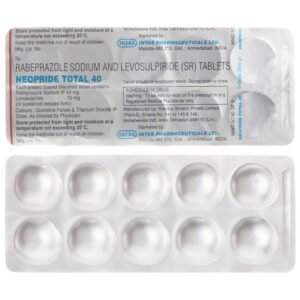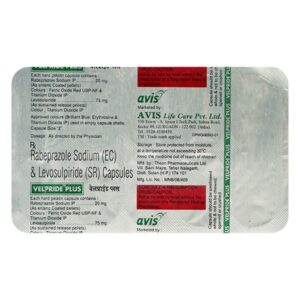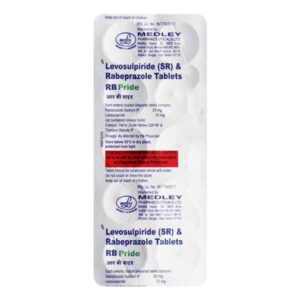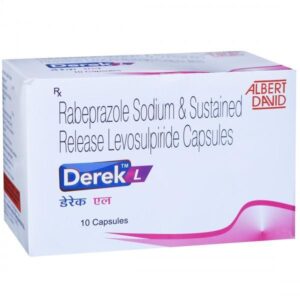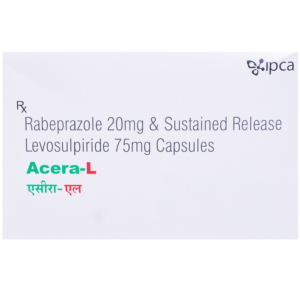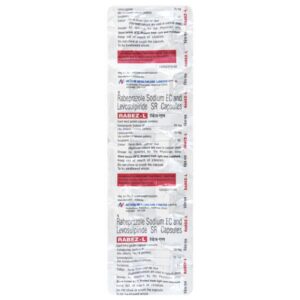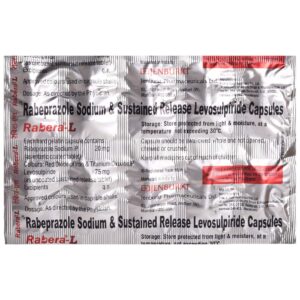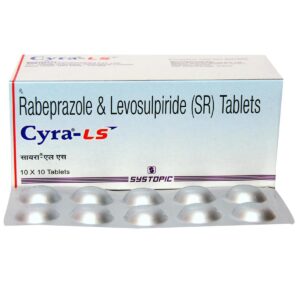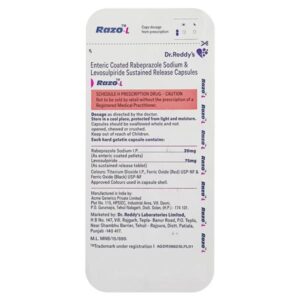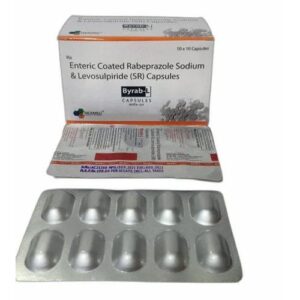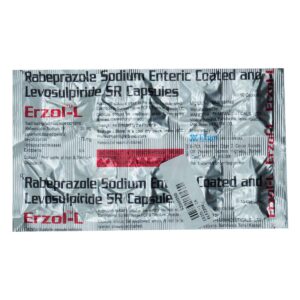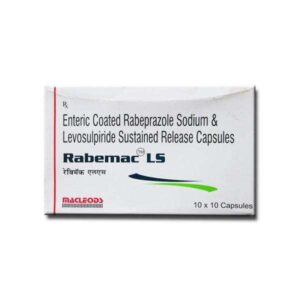RABEPRAZOLE + LEVOSULPIRIDE
Rabeprazole: Rabeprazole is a medication that belongs to the class of drugs called proton pump inhibitors (PPIs). It is commonly used to treat conditions such as gastroesophageal reflux disease (GERD), peptic ulcers, and Zollinger-Ellison syndrome.
The mechanism of action of rabeprazole involves the reduction of acid production in the stomach. It works by inhibiting the proton pump (H+/K+-ATPase) in the gastric parietal cells, which is responsible for secreting acid into the stomach. By blocking this enzyme, rabeprazole decreases the amount of acid produced, thereby relieving symptoms and promoting healing of the gastric mucosa.
The recommended dose of rabeprazole varies depending on the condition being treated. For GERD, the usual dose is 20 mg once daily for 4 to 8 weeks. In the case of peptic ulcers, the recommended dose is 20 mg once daily for up to 12 weeks. Your doctor will determine the appropriate duration and dose based on your individual needs.
As with any medication, rabeprazole can cause side effects. Common side effects include headache, diarrhea, nausea, abdominal pain, flatulence, and constipation. These side effects are generally mild and temporary. However, if you experience any severe or persistent side effects, it is important to inform your doctor.
It is worth noting that long-term use of high-dose PPIs like rabeprazole has been associated with an increased risk of certain adverse effects, including bone fractures, vitamin B12 deficiency, and an increased risk of certain infections. Your doctor will carefully assess the risks and benefits of long-term use before prescribing rabeprazole.
Levosulpiride: Levosulpiride is a medication primarily used to treat various gastrointestinal disorders such as functional dyspepsia and irritable bowel syndrome. It belongs to a class of drugs called selective dopamine D2 receptor antagonists.
The mechanism of action of Levosulpiride involves blocking the receptors of the neurotransmitter dopamine in the brain and gut. By doing so, it helps regulate and enhance the gastrointestinal motility, easing symptoms such as abdominal pain, bloating, and discomfort.
The typical recommended dose of Levosulpiride ranges from 25 to 50 milligrams (mg) taken orally, three times a day before meals. However, the dosage may vary based on the specific condition being treated, as well as the individual’s age, weight, and overall health. It is essential to follow the instructions provided by the prescribing physician and not exceed the recommended dose.
Like any medication, Levosulpiride may cause some side effects. Common side effects include headache, dizziness, drowsiness, dry mouth, constipation, and gastrointestinal disturbances such as nausea and vomiting. Some less common and more severe side effects may also occur, which should be reported to a healthcare professional immediately. These include movement disorders, irregular heartbeat, allergic reactions, and changes in mood or behavior.
It is vital to note that Levosulpiride should only be taken under the supervision of a healthcare professional. They will determine if it is appropriate based on an individual’s medical history, current medications, and the potential interactions or contraindications.

